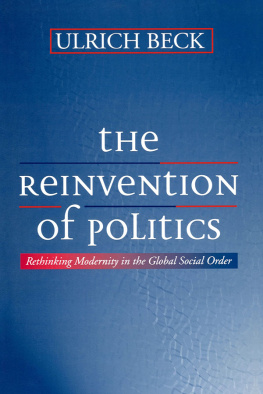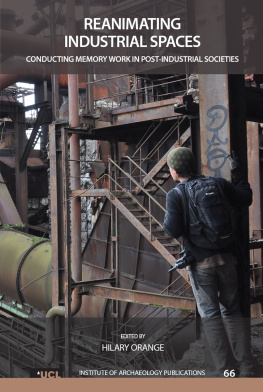First published 1979 by M.E. Sharpe
Reissued 2018 by Routledge
2 Park Square, Milton Park, Abingdon, Oxon OX14 4RN
711 Third Avenue, New York, NY 10017, USA
Routledge is an imprint of the Taylor & Francis Group, an informa business
Copyright 1979 by Michael Rose
No part of this book may be reprinted or reproduced or utilised in any form or by any electronic, mechanical, or other means, now known or hereafter invented, including photocopying and recording, or in any information storage or retrieval system, without permission in writing from the publishers.
Notices
No responsibility is assumed by the publisher for any injury and/or damage to persons or property as a matter of products liability, negligence or otherwise, or from any use of operation of any methods, products, instructions or ideas contained in the material herein.
Practitioners and researchers must always rely on their own experience and knowledge in evaluating and using any information, methods, compounds, or experiments described herein. In using such information or methods they should be mindful of their own safety and the safety of others, including parties for whom they have a professional responsibility.
Product or corporate names may be trademarks or registered trademarks, and are used only for identification and explanation without intent to infringe.
Publishers Note
The publisher has gone to great lengths to ensure the quality of this reprint but points out that some imperfections in the original copies may be apparent.
Disclaimer
The publisher has made every effort to trace copyright holders and welcomes correspondence from those they have been unable to contact.
A Library of Congress record exists under LC control number: 78066166
ISBN 13: 978-1-138-04502-6 (hbk)
ISBN 13: 978-1-315-17220-0 (ebk)
News of the death of George Friedmann in mid-November 1977 (closely following that of Alexis Stakhanov), arrived just as the final lines of this study were being written. These events would have seemed themselves to place a kind of symbolic full stop on some of the material in this study if I had not attended, a fortnight later, a crowded conference of the Industrial Sociology study-group of the British Sociological Association at the London School of Economics, which had set itself the task of reviewing the current evolution of the labour process.
Whatever the limitations of Friedmann's own approach to it, and despite the illusion that sometimes arose in some places over the last three decades that the labour process no longer was of much theoretical or practical interest, it is a sombre measure of the sluggishness of social progress that the descriptions of industrial work uttered at this meeting differed in no essential way from those for which Friedmann will remain celebrated. On the theoretical level, matters appeared very different; for example, what seemed to be a vocal expatriate contingent ensured that the analytical perspectives of the Monthly Review did not go by default.
Yet even these contributions rang distant echoes of the more partisan analyses of the younger Friedmann (the admirer of the Soviet rather than the Chinese experiment) in their assured schematisation, reinforcing the conviction that there is still room, in contemporary social analysis of this as of other industrial phenomena, for theoretical advances and hence for the empirical studies with which they necessarily interact.
To help clarify what is needed here is one aim of this study, and it can therefore be read as supplementing the discussion offered in Industrial Behaviour. However, differences with the earlier work should be noticed, and this is the appropriate moment to say something about them.
First, the 'background material' on which this study has drawn has been very much richer, enabling a far more sustained consideration to be undertaken of the historical circumstances in which sociologie du travail emerged and evolved. Acquisition and exploitation of this material depended directly upon support received initially from the Nuffield Foundation, which financed enquiries during sabbatical leave in 1975-6, and subsequently from the Social Science Research Council, whose personal research grant scheme enabled a further year's work of analysis and writing up. For reasons that genuinely go beyond the requirements of etiquette or propitiation (and any bold print on funding acceptance forms), I wish to acknowledge here the prompt interest and consistent helpfulness of both the Foundation and the SSRC.
Secondly, the study fixed upon a scientific effort concentrated within a relatively brief span of timethough one which saw profound changesin a single country, albeit one with an intricate cultural life and a complex social structure. Why should contemporary France be singled out in this fashion?
To begin with, several of the major figures dealt with in this studyFriedmann, Crozier, Touraine, Malletare already somewhat familiar to English-speaking industrial investigators, and the theoretical ideas of one or two of them have aroused great interest in some quarters in recent years. At the very least it seemed worthwhile to attempt the kind of assessment of them which language barriers and the freaks of translation had hitherto restrained. It is always valuable to be confronted with novel theory, even when some of its originality may depend somewhat upon conjecture; likewise, it is instructive to glimpse the unsuspected common assumptions underlying apparently incommensurate theoretical formulations; it is always stimulating, because it is a risky business, to attempt to trace the lines of involvement between a social thinker and his society, which have helped to condition his theory into what it is. And it is sobering too, because such influences are not culture bound.
Related, though maybe subsidiary, to these exercises is the sheer historical interest of observing the recent evolution of a major substantive field of sociology in the country which after all invented the discipline originally and produced, m the figure of Durkheim, the first sociologist determined to reconcile concrete investigation and the creation of theory. This tradition, already enfeebled in the twenties, had been virtually extinguished by the end of the Second World War. In what form had it revived in a France, whose altering international position had rendered it an increasingly open market to currents of ideas flowing from both east and west, and where socio-economic change was, in many eyes, now master-minded by 'technocratic' groups, whose image and creed had been first sketched in the pages of Saint-Simon himself?
But even if unserviceable on these counts, it is hoped that the study will be useful on two others. First, it is so structured as to produce a steady fall-out of substantive material and discussion bearing on social development in general in contemporary France, and more precise information on matters of particular interest such as industrial relations. Though lip-service is constantly paid to comparative study in social science, practice remains distorted in Britain partly because of the unavailability of material on certain societies, despite invaluable recent syntheses in particular areas such as class relations. In particular, the accident of language results in comparison occurring predominantly with the United States, a country whose history and position render it somewhat untypical beside the group of capitalist societies, of which Britain forms part, whose industrialisation demanded liquidation of a feudal past and which have come to share an increasingly parallel set of relations with the dominant power itself.











